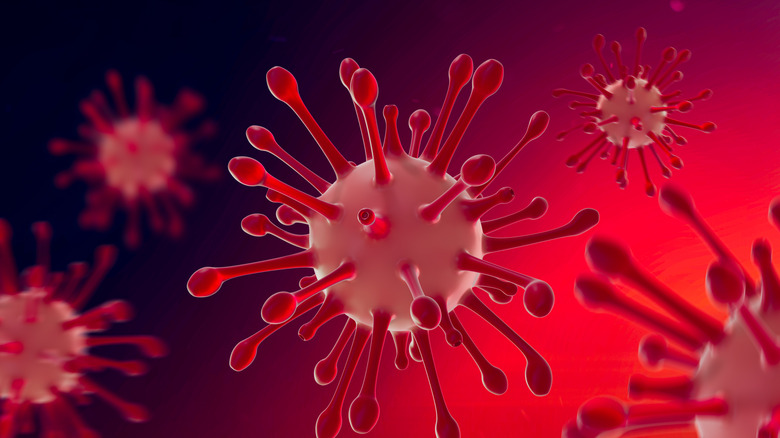New Study Finds What COVID-19 Can Do To Your Gut Health
Experts have long known that COVID-19 can cause other health complications. While most people infected with the virus experience mild symptoms and recover without any difficulties, WebMD reports that about 1 in every 6 persons that becomes infected with COVID-19 will experience some kind of other health complication. These problems generally result from a condition that triggers the body to release inflammatory proteins, and they can lead to pneumonia, acute respiratory syndrome (ARDS), acute kidney injury, blood clots, chronic fatigue, and secondary infections.
People with health conditions or autoimmune disorders appear to be even more at risk for COVID complications — including long COVID, which has many symptoms that range from a racing heart to sleeping problems. More serious complications arising from long COVID can affect the heart, lungs, kidneys, brain, and even the skin, according to the U.S. Centers for Disease Control and Prevention (CDC). Now, new research suggests that the coronavirus can impact your gut health — and not in a good way.
COVID-19 disrupts the balance of gut bacteria
The findings, published in the journal Nature Communications, showed that the coronavirus can decrease the number of bacteria in a person's gut, creating an environment for dangerous bacteria to survive. Co-senior author of the study Ken Cadwell, Ph.D., a microbiologist at New York University Grossman School of Medicine, said "coronavirus infection directly interferes with the healthy balance of microbes in the gut, further endangering patients."
Gut samples collected from 96 men and women showed an imbalance of the gut microbiome, which included "blooms of opportunistic pathogenic bacterial genera known to include antimicrobial-resistant species." The study also revealed that antibiotic-resistant bacteria can make their way into the bloodstream, increasing the risk of life-threatening secondary infections. Stool samples also showed that gut-to-bloodstream infections in COVID-infected patients could possibly complicate health conditions for immunocompromised individuals. Senior author of the study, Jonas Schluter, Ph.D., said in a news release that the results "highlight how the gut microbiome and different parts of the body's immune system are closely interconnected."


